Aidan W. Olson
Aidan W. Olson
Graduate Student
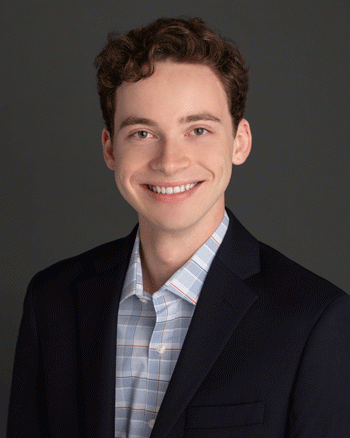

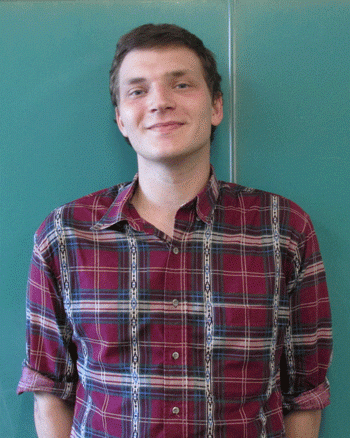
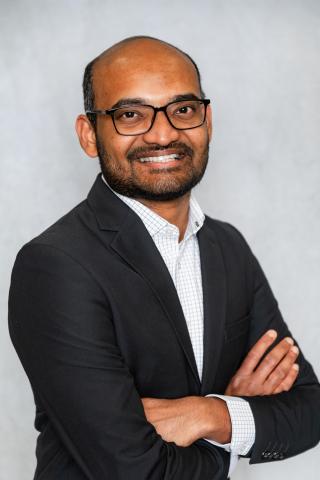
Dr. Rajappan’s research interests include fluid mechanics, soft robotics, and wearable devices for mobility assistance and rehabilitation. For information about ongoing research, publications, and opportunities in the Fluids and Soft Technologies (FAST) Lab, see https://fluids.tulane.edu.
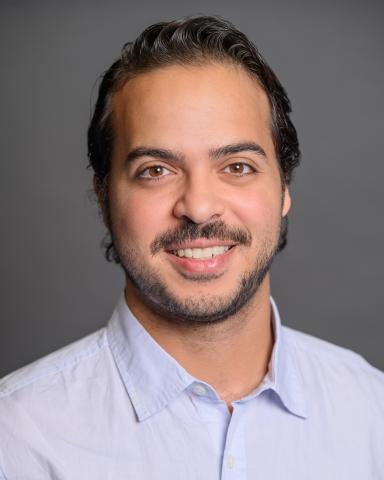
Dr. Majed's research interests include Mechanical Engineering/Metallurgy/Nanomaterials synthesis, characterization, and electrochemical testing.
Majed, A., Torkamanzadeh, M., Nwaokorie, C.F., Eisawi, K., Dun, C., Buck, A., Urban, J.J., Montemore, M.M., Presser, V. and Naguib, M., 2023. Toward MBenes Battery Electrode Materials: Layered Molybdenum Borides for Li‐Ion Batteries. Small Methods, p.2300193.
Majed, A., Kothakonda, M., Wang, F., Tseng, E.N., Prenger, K., Zhang, X., Persson, P.O., Wei, J., Sun, J. and Naguib, M., 2022. Transition Metal Carbo‐Chalcogenide “TMCC:” A New Family of 2D Materials. Advanced Materials, 34(26), p.2200574.
Husmann, S., Torkamanzadeh, M., Liang, K., Majed, A., Dun, C., Urban, J.J., Naguib, M. and Presser, V., 2022. Layered Nano‐Mosaic of Niobium Disulfide Heterostructures by Direct Sulfidation of Niobium Carbide MXenes for Hydrogen Evolution. Advanced Materials Interfaces, 9(14), p.2102185.
Wang, L., Torkamanzadeh, M., Majed, A., Zhang, Y., Wang, Q., Breitung, B., Feng, G., Naguib, M. and Presser, V., 2022. Time‐Dependent Cation Selectivity of Titanium Carbide MXene in Aqueous Solution. Advanced Sustainable Systems, 6(3), p.2100383.
Liang, K., Tabassum, A., Majed, A., Dun, C., Yang, F., Guo, J., Prenger, K., Urban, J.J. and Naguib, M., 2021. Synthesis of new two‐dimensional titanium carbonitride Ti2C0.5N0.5Tx MXene and its performance as an electrode material for sodium‐ion battery. InfoMat, 3(12), pp.1422-1430.
Kumar, V., Yeole, P., Majed, A., Park, C., Li, K., Naguib, M., Ravindranath, P.K., Jafta, C., Spencer, R., Compton, B. and Vaidya, U., 2021. MXene reinforced thermosetting composite for lightning strike protection of carbon fiber reinforced polymer. Advanced Materials Interfaces, 8(17), p.2100803.
El-Mahallawy, N., Majed, A. and Maboud, A.A.G.A., 2020. Effect of FSP process parameters with air blowing on microstructure and hardness of NiAl Bronze alloy. Materials Research Express, 7(1), p.016590.
Subedi, B., Khatoon, N., Gaire, M., Majed, A., He, J., Zhang, X., & Chrisey, D. B. Rapid Fabrication of Binder Free Nickel Cobalt Oxide Electrodes with Forest-Like Architecture for Electrochemical Energy Storage Applications. Available at SSRN 4737632.
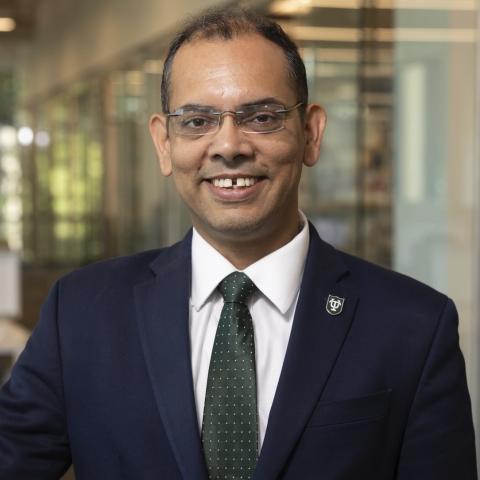
Dr. Hridesh Rajan is the Dean of the School of Science and Engineering at Tulane University, a position he has held since July 2024. As the leader of the second largest school at Tulane, encompassing eleven departments ranging from biological sciences and chemical engineering to physics and psychology, Dr. Rajan oversees more than 60 academic programs enrolling 2,255 undergraduate and 473 graduate/professional students. He is deeply committed to building an interdisciplinary-first, translational school of science and engineering focused on better lives. A distinguished computer scientist and academic leader, Dr. Rajan's career spans extensive contributions in research, education, and higher education administration.
Prior to joining Tulane, Dr. Rajan served for nearly two decades at Iowa State University, where he was the Kingland Professor and Chair of the Department of Computer Science. In this role, he significantly enhanced the department's national standing by overseeing substantial growth in student enrollment, faculty size, and research funding. He led a comprehensive strategic planning process that positioned the department for long-term success, emphasizing academic excellence, interdisciplinary innovation, and institutional alignment. Dr. Rajan also launched pioneering interdisciplinary data science programs and founded the Midwest Big Data Summer School, expanding access to advanced research training. Widely recognized for his administrative acumen and collaborative leadership, he increased the representation of women in computing programs by 45% and fostered cross-disciplinary research efforts that secured significant external funding. His leadership consistently emphasized student success, equitable faculty workload, and fiscal responsibility.
Dr. Rajan earned his B.Tech. from the Indian Institute of Technology (BHU), Varanasi, and completed his M.S. and Ph.D. in Computer Science at the University of Virginia. His research has advanced the fields of software engineering, programming languages, and data science, notably through the creation of the Boa programming language, designed to democratize large-scale data analysis. He has held visiting positions at the University of Texas at Austin, Harvard University, and as a U.S.-UK Fulbright Scholar at the University of Bristol. His scholarly excellence has been recognized with numerous honors, including the NSF CAREER Award, a Fulbright U.S. Scholar Award, and election as a Fellow of the American Association for the Advancement of Science (AAAS).
As Dean at Tulane, Dr. Rajan is committed to student success, fostering interdisciplinary collaboration, enhancing research capabilities, and strategically growing the School of Science and Engineering’s national and global impact. Central to his leadership at Tulane is the ambitious 1000 Days Plan, a strategic initiative aimed at accelerating interdisciplinary and translational research, expanding academic programs especially in engineering, expanding experiential opportunities for undergraduate students, and strengthening industry and community partnerships to elevate Tulane’s prominence in science and engineering education and research.
Software Engineering and Programming Languages
Programming Languages
Object-oriented Analysis and Design
Advanced Topics in Programming Languages: Type Systems
Shibbir Ahmed, Hongyang Gao, and Hridesh Rajan, "Inferring Data Preconditions from Deep Learning Models for Trustworthy Prediction in Deployment," ICSE’2024: The 46th International Conference on Software Engineering, April, 2024.
David OBrien, Sumon Biswas, Sayem Mohammad Imtiaz, Rabe Abdalkareem, Emad Shihab, and Hridesh Rajan, "Are Prompt Engineering and TODO Comments Friends or Foes? An Evaluation on GitHub Copilot," ICSE’2024: The 46th International Conference on Software Engineering, April, 2024.
David OBrien, Robert Dyer, Tien Nguyen, and Hridesh Rajan, "Data-Driven Evidence-Based Syntactic Sugar Design," ICSE’2024: The 46th International Conference on Software Engineering, April, 2024.
Ali Ghanbari, Deepak-George Thomas, Muhammad Arbab Arshad, and Hridesh Rajan, "Mutation-based Fault Localization of Deep Neural Networks," ASE’2023: 38th IEEE/ACM International Conference on Automated Software Engineering, September, 2023.
Samantha Syeda Khairunnesa, Shibbir Ahmed, Sayem Mohammad Imtiaz, Hridesh Rajan, and Gary T. Leavens, "What Kinds of Contracts Do ML APIs Need?," Empirical Software Engineering, March, 2023.
Shibbir Ahmed, Sayem Mohammad Imtiaz, Samantha Syeda Khairunnesa, Breno Dantas Cruz, and Hridesh Rajan, "Design by Contract for Deep Learning APIs," ESEC/FSE’2023: The 31st ACM Joint European Software Engineering Conference and Symposium on the Foundations of Software Engineering, December, 2023.
Giang Nguyen, Sumon Biswas, and Hridesh Rajan, "Fix Fairness, Don’t Ruin Accuracy: Performance Aware Fairness Repair using AutoML," ESEC/FSE’2023: The 31st ACM Joint European Software Engineering Conference and Symposium on the Foundations of Software Engineering, December, 2023.
Sumon Biswas and Hridesh Rajan, "Fairify: Fairness Verification of Neural Networks," ICSE’23: The 45th International Conference on Software Engineering, May, 2023.
Sayem Mohammad Imtiaz, Fraol Batole, Astha Singh, Rangeet Pan, Breno Dantas Cruz, and Hridesh Rajan, "Decomposing a Recurrent Neural Network into Modules for Enabling Reusability and Replacement," ICSE’23: The 45th International Conference on Software Engineering, May, 2023.
Usman Gohar, Sumon Biswas, and Hridesh Rajan, "Towards Understanding Fairness and its Composition in Ensemble Machine Learning," ICSE’23: The 45th International Conference on Software Engineering, May, 2023.
David OBrien, Sumon Biswas, Sayem Mohammad Imtiaz, Rabe Abdalkareem, Emad Shihab, and Hridesh Rajan, "23 Shades of Self-Admitted Technical Debt: An Empirical Study on Machine Learning Software," Proceedings of the 30th ACM Joint European Software Engineering Conference and Symposium on the Foundations of Software Engineering, November, 2022.
Tianxiang Gao, Hailiang Liu, Jia Liu, Hridesh Rajan, and Hongyang Gao, "A Global Convergence Theory for Deep ReLU Implicit Networks via Over-Parameterization," ICLR’22: The 10th International Conference on Learning Representations, April, 2022.
Sumon Biswas, Mohammad Wardat, and Hridesh Rajan, "The Art and Practice of Data Science Pipelines: A Comprehensive Study of Data Science Pipelines In Theory, In-The-Small, and In-The-Large," ICSE’22: The 44th International Conference on Software Engineering, May, 2022.
Rangeet Pan and Hridesh Rajan, "Decomposing Convolutional Neural Networks into Reusable and Replaceable Modules," ICSE’22: The 44th International Conference on Software Engineering, May, 2022.
Mohammad Wardat, Breno Dantas Cruz, Wei Le, and Hridesh Rajan, "DeepDiagnosis: Automatically Diagnosing Faults and Recommending Actionable Fixes in Deep Learning Programs," ICSE’22: The 44th International Conference on Software Engineering, May, 2022.
Giang Nguyen, Johir Islam, Rangeet Pan, and Hridesh Rajan, "Manas: Mining Software Repositories to Assist AutoML," ICSE’22: The 44th International Conference on Software Engineering, May, 2022.
Menglu Yu, Bo Ji, Hridesh Rajan, and Jia Liu, "On Scheduling Ring-All-Reduce Learning Jobs in Multi-Tenan GPU Clusters with Communication Contention," Proc. ACM MobiHoc, October, 2022.
PDF Download
Shibbir Ahmed, Md Johirul Islam, and Hridesh Rajan, "Semantics and Anomaly Preserving Sampling Strategy for Large-Scale Time Series Data," ACM/IMS Transactions on Data Science, January, 2022.
Sumon Biswas and Hridesh Rajan, "Fair Preprocessing: Towards Understanding Compositional Fairness of Data Transformers in Machine Learning Pipeline," ESEC/FSE’2021: The 29th ACM Joint European Software Engineering Conference and Symposium on the Foundations of Software Engineering, August, 2021.
Mohammad Wardat, Wei Le, and Hridesh Rajan, "DeepLocalize: Fault Localization for Deep Neural Networks," ICSE’21: The 43nd International Conference on Software Engineering, May, 2021.
Hamid Bagheri, Andrew J. Severin, and Hridesh Rajan, "Detecting and correcting misclassified sequences in the large-scale public databases ," Oxford Bioinformatics, August, 2020.
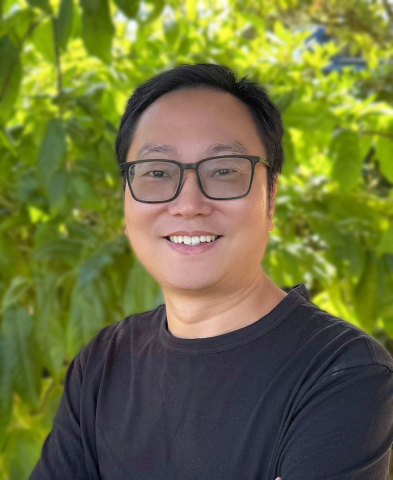
Department of Earth and Environmental Sciences
Blessey Hall Room 206
New Orleans, LA 70118
Dr. Zhang's research interests lie at the intersection of Earth and environmental sciences, focusing on the biogeochemical cycling of global contaminants. He combines mechanistic insight and observational data to develop Earth System Models for different environmental compartments and their interfaces. His studies elucidate key environmental processes, establish comprehensive budgets, assess the impact of human activities on environmental quality, and project the influences of climate change in both historical and future contexts. Current projects target mercury (Hg), (micro)plastics, PFAS, antibiotics, radionuclides, and other legacy and emerging pollutants. For more information visit https://ebmg.tulane.edu.
Sun et al. 2024. Calcite carbonate sinks low-density plastic debris in open oceans. Nature Communications 15 (1), 4837.
Yuan et al. 2024. Potential decoupling of CO2 and Hg uptake process by global vegetation in the 21st century. Nature Communications 15 (1), 4490.
Fu et al. 2023. Modeling atmospheric microplastic cycle by GEOS-Chem: An optimized estimation by a global dataset suggests likely 50 times lower ocean emissions. One Earth 6, 705-714.
Wu and Zhang, 2023. Toward a Global Model of Methylmercury Biomagnification in Marine Food Webs: Trophic Dynamics and Implications for Human Exposure. Environmental Science & Technology 57(16) 6563-6572.
Zhang et al. 2023. An updated global mercury budget from a coupled atmosphere-land-ocean model: 40% more re-emissions buffer the effect of primary emission reductions. One Earth 6(3), 316-325.
Zhang et al. 2023. Plastic Waste Discharge to the Global Ocean Constrained by Seawater Observations. Nature Communications 14(1) 1372.
Wang et al. 2023. Climate-Driven Changes of Global Marine Mercury Cycles in 2100. PNAS 120(2) e2202488120.
Song et al. 2022. Modeling Mercury Isotopic Fractionation in the Atmosphere. Environmental Pollution 307,119588.
Peng et al. 2021. Plastic waste release caused by COVID-19 and its fate in the global ocean. PNAS 118(47) e2111530118.
Zhang et al. 2021. Global Health Effects of Future Atmospheric Mercury Emissions. Nature Communications 12, 3035.
Zhang et al. 2020. A global model for methylmercury formation and uptake at the base of marine food webs. Global Biogeochemical Cycles 34(2), e2019GB006348.
Wagner et al. 2019. A Global 3-D Ocean Model for PCBs: Benchmark Compounds for Understanding the Impacts of Global Change on Neutral Persistent Organic Pollutants. Global Biogeochemical Cycles 33(3) 469-481.
Wang et al. 2017. Trade-driven relocation of air pollution and health impacts in China. Nature Communications 8, 738.
Zhang et al. 2017. North Atlantic Deep Water formation inhibits high Arctic contamination by continental perfluorooctane sulfonate discharges. Global Biogeochemical Cycles 31(8) 1332-1343.
Zhang et al. 2016. Observed decrease in atmospheric mercury explained by global decline in anthropogenic emissions. PNAS 113(3) 526-531.
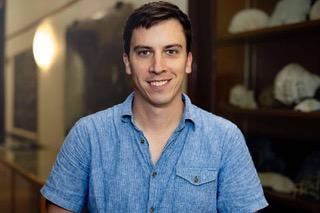
My research interests include coral reefs, anthropogenic climate change, ocean dynamics, coastal biogeochemistry, and ocean acidification.
Henley B.J., McGregor H.V., King A.D., Hoegh-Guldberg O., Arzey A.K., Karoly D.J., Lough J., DeCarlo T.M., & B.K. Linsley (2024). Highest ocean heat in four centuries places Great Barrier Reef in danger. Nature 632, 320-326.
Whitaker H.V. & T.M. DeCarlo (2024). Re(de)fining Degree-Heating Week: Coral Bleaching Variability Necessitates Regional and Temporal Optimization of Global Forecast Model Stress Metrics. Coral Reefs.https://doi.org/10.1007/s00338-024-02512-w
Mantanona H.C. & T.M. DeCarlo (2023). Coral growth persistence amidst bleaching events. Limnology and Oceanography Letters 8, 734-741. https://doi.org/10.1002/lol2.10340
Chen W-H., Ren H., Chiang J.C.H., Wang Y-L., Cai-Li R-Y, Chen Y-C., Shen C-C., Taylor F.W., DeCarlo T.M., Wu C-R., Mii H-S., & X.T. Wang (2023). Increased tropical South Pacific western boundary current transport over the past century. Nature Geoscience 16, 590-596. 10.1038/s41561-023-01212-4
DeCarlo T.M., Carvalho S., Gajdzik L., Hardenstine R.S., Tanabe L.K., Villalobos R., & M.L. Berumen (2021). Patterns, drivers, and ecological implications of upwelling in coral reef habitats of the southern Red Sea. Journal of Geophysical Research – Oceans 126, e2020JC016493.
DeCarlo T.M. (2020). Treating coral bleaching as weather: a framework to validate and optimize prediction skill. PeerJ8, e9449.
DeCarlo T.M., Gajdzik L., Ellis J., Coker D.J., Roberts M.B., Hammerman N.M., Pandolfi J.M., Monroe A.A. & M.L. Berumen (2020). Nutrient-supplying ocean currents modulate coral bleaching susceptibility. Science Advances 6, eabc5493.
DeCarlo T.M. & H.B. Harrison (2019). An enigmatic decoupling between heat stress and coral bleaching on the Great Barrier Reef. PeerJ 7, e7473.
DeCarlo T.M., Harrison H.B., Gajdzik L., Alaguarda D., Rodolfo-Metalpa R., D’Olivo J., Liu G., Patalwala D., & M.T. McCulloch (2019). Acclimatization of massive reef-building corals to consecutive heatwaves. Proceedings of the Royal Society B 286, 20190235.
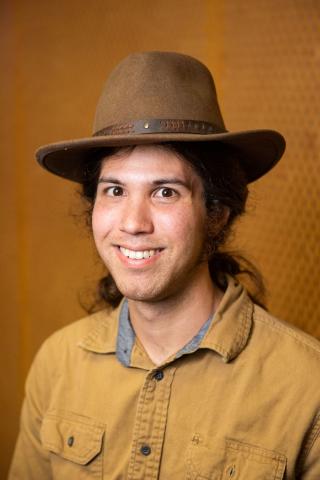
About Professor Bankston
Victor Bankston is a Professor of Practice at Tulane University, specializing in quantum information and combinatorial designs. With a passion for exploring the intersections of these fields, Victor aims to foster a dynamic and engaging learning environment. His dedication to teaching stems from a desire to study computers as a means to understand the world more broadly, continually striving to enhance both his own knowledge and that of his students.
Research Interests
Quantum computation/information, combinatorial designs, optimization
Office
312 Stanley Thomas Hall
Teaching
Sp24, CMPS 2170/MATH 2170: Introduction to Discrete Math
Publications
Hidden Variables for Pauli Measurements (in review at Quantum Journal)
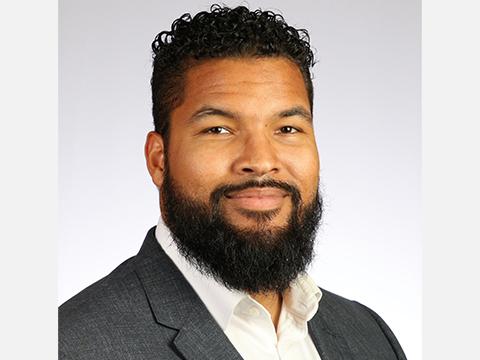
Uptown: 531 Lindy Boggs Center
Downtown: 414 J. Bennett Johnston Building
Department of Biomedical Engineering
Tulane University
New Orleans, LA 70118
Fall
BMEN 3400/6400 Biomaterials & Tissue Engineering
The Green Engineering Equity group focuses on developing biomaterial-based approaches to improve hematopoietic stem cell (HSC) transplantation, using sickle cell disease as a primary model system. We investigate how factors like pathology, sex, and age modify HSC function through engineered in vitro and in vivo models to inform our biomaterial design. By exploiting bone marrow physiology, our platforms aim to improve stem cell transplantation engraftment and recovery. Our ultimate goal is to develop more effective, cost-efficient procedures, creating equitable treatments for the various disorders reliant upon hematopoietic stem cell transplantation.
In tandem with our biomedical research, our educational initiatives integrate healthcare equity into engineering curricula to enhance student retention, success, and overall experience. By combining advanced technical education with an understanding of ethical and human-centered aspects of engineering, we foster a more inclusive and equitable learning environment. This approach ensures that students are not only technically proficient but also socially conscious, preparing them to tackle complex healthcare challenges and contribute meaningfully to health equity.
Rising Stars in Engineering in Health Fellow (2023)
George Mason University InSPIRE Award (2023)
University of Texas at Austin Equity in Engineering Award (2023)
Society for Biomaterials Postdoc Recognition Award (2022)
Massachusetts Institute of Technology Impact Fellow (2019)
Sigma Xi Grant-In-Aid of Research Recipient (2016)
NSF Graduate Research Fellow (2012 - 2015)
Google Scholar: tinyurl.com/4f6d67t6